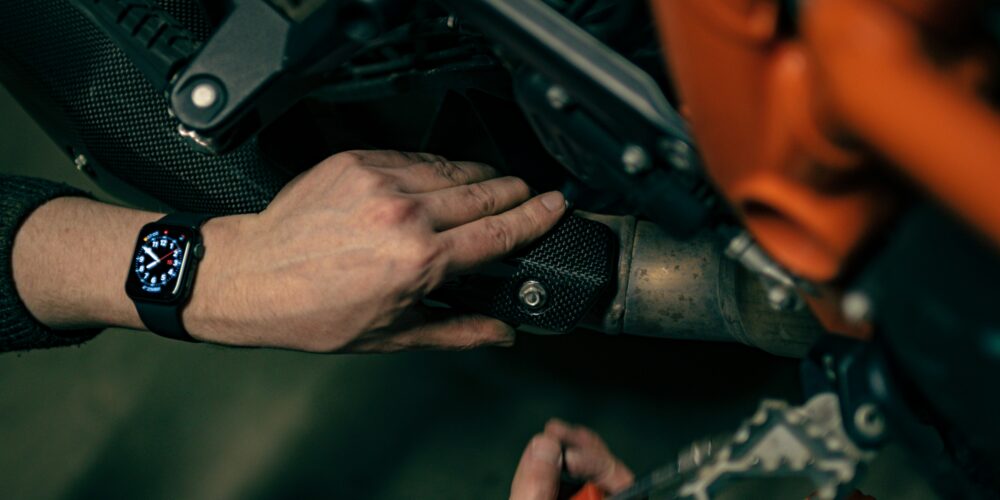In today’s fast-paced world, our vehicles are more than just a mode of transportation – they are complex machines embedded with advanced technology and electronics. Understanding vehicle diagnostics and why a qualified mechanic is essential is crucial for maintaining your vehicle’s health and ensuring your safety on the road. This article delves into the importance of vehicle diagnostics and the role of a qualified mechanic in this process.
What are Vehicle Diagnostics?
When seeking diagnostics for your vehicle, you may be wondering exactly what ‘diagnostics’ are and how they work – running diagnostics is the process of identifying and analysing issues within a vehicle’s systems using specialised tools and equipment. Modern vehicles are equipped with an onboard diagnostics system (OBD) that monitors the performance of various components and systems. When something goes wrong, the OBD system generates error codes, which can be read using a diagnostic scanner. This information, alongside expert knowledge of what each of these codes means and corresponds to, allows our mechanics to start putting together a plan for quick, efficient and accurate repairs.
The Diagnostic Process
Our qualified mechanics will utilise their expertise and leading technology to run full and comprehensive diagnostics using given codes, visual inspections and more. Generally speaking, the diagnostic process will follow four key steps:
1 – Scanning for Codes: The first step in vehicle diagnostics is connecting a diagnostic scanner to the vehicle’s OBD-II port. This scanner reads the error codes stored in the vehicle’s computer, providing a starting point for identifying potential issues.
2 – Interpreting the Codes: Each error code corresponds to a specific issue or system in the vehicle. A qualified mechanic uses their knowledge and experience to interpret these codes accurately and investigate further where necessary. While some codes may point directly to a faulty component, others might require further investigation.
3 – Performing Tests: A mechanic conducts various tests to confirm the diagnosis once the error codes are interpreted. This can include visual inspections, testing electrical circuits, checking fluid levels, and more. Advanced diagnostics might involve using oscilloscopes or thermal imaging to pinpoint otherwise elusive or hard-to-find problems.
4 – Repair and Maintenance: After identifying the root cause of the issue, your mechanic will put together a comprehensive repair plan for you to approve, and then perform the necessary repairs or maintenance. This can range from replacing faulty sensors to fixing wiring issues or addressing mechanical failures.
Why a Qualified Mechanic is Essential
When it comes to issues with your vehicle, it is always best to call on the expertise of a qualified mechanic to support you and your vehicle. When you book your vehicle in with our team, you can do so with the confidence that not only will we get to the heart of the issue, but will repair your vehicle to the highest possible standard and get you back on the road as soon as possible. With a qualified mechanic, you can rely on:
Expert Knowledge and Experience:
Qualified mechanics undergo extensive training and certification to understand the intricacies of both older and modern vehicles. Their expertise allows them to accurately diagnose issues that might otherwise be missed. They stay updated with the latest advancements in automotive technology, ensuring they can handle even the most sophisticated systems when diagnosing, repairing and even servicing the vehicle.
Access to Specialised Tools:
Vehicle diagnostics often require specialised tools and equipment that are not typically available to the average car owner. A qualified and experienced mechanic will have access to these tools and know how to use them effectively. This ensures accurate diagnosis and efficient repairs suited to your vehicle and issue.
Comprehensive Understanding of Systems:
Modern vehicles have interconnected systems, where a problem in one area can affect others, whether it’s simply reduced performance or a bigger issue. Qualified mechanics understand these connections and can diagnose issues holistically, ensuring that all related problems are addressed.
Avoiding Misdiagnosis and Further Damage:
Incorrectly diagnosing a vehicle issue can lead to unnecessary repairs and potential further damage. A qualified mechanic reduces the risk of misdiagnosis, saving you time and money in the long run. Their precise work ensures that the problem is fixed correctly the first time.
Ensuring Safety and Reliability:
Vehicle diagnostics is not just about fixing problems; it’s also about ensuring the safety and reliability of your vehicle. Our qualified mechanics perform thorough checks to confirm that all systems are functioning correctly, providing peace of mind that everything has been checked and repaired, ensuring your safety when you’re on the road.
Warranty and Legal Considerations:
Many vehicle warranties require repairs and diagnostics to be performed by certified mechanics. This ensures that the work is done to a high standard and maintains the validity of your warranty. Professional mechanics will also follow legal and safety regulations, ensuring that your vehicle is compliant with all requirements.
Understanding vehicle diagnostics and the importance of a qualified mechanic is essential for maintaining your vehicle’s performance and safety. With their expert knowledge, access to specialised tools, and comprehensive understanding of vehicle systems, qualified mechanics ensure accurate diagnosis and efficient repairs. By entrusting your vehicle to our professional team, you can avoid misdiagnosis, prevent further damage, and ensure your vehicle remains reliable and safe on the road.
To book your vehicle in with us for a car repair, all you have to do is get in touch. Give us a call on 0808 164 0418 or use our handy online form to get started.

